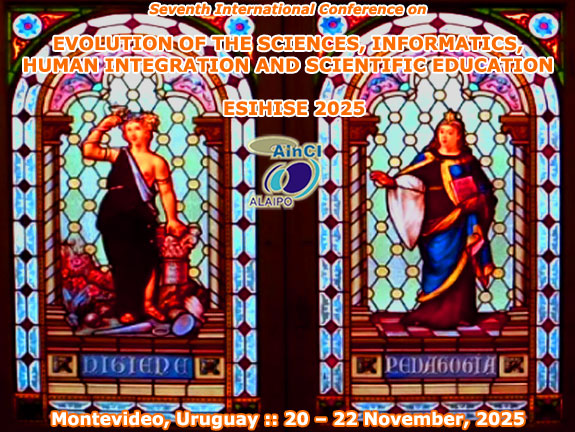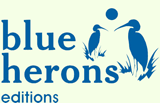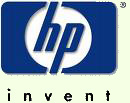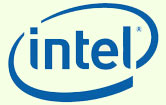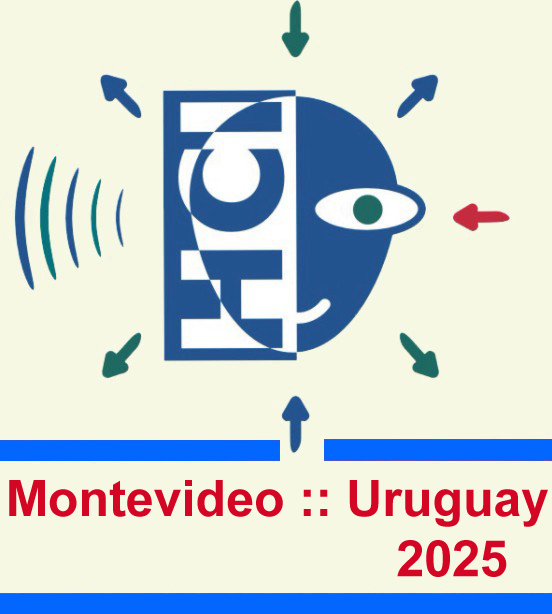Seventh International Conference on
Evolution of the Sciences, Informatics, Human Integration and
Scientific Education
( ESIHISE 2025 )
:: Montevideo – Uruguay ::
November 20 – 22, 2025
| Home |
| Topics |
| Important Dates |
| Paper Submission |
| Organization |
| Program |
| Registration |
| Publications |
::. BBK .::
Birkbeck University of London
UK
::. CNR .::
National Research Council
Italy
::. FUN .::
Future University Hakodate
Japan
::. IIMROHTAK .::
Indian Institute of Management Rohtak
India
::. ITB .::
Institute of Technology Bandung
Indonesia
::. KETTERING .::
Kettering University
USA
::. KI .::
Karolinska Institute
Sweden
::. KNU .::
Kainan University
Taiwan
::. LEEDS .::
University of Leeds
UK
::. MCU .::
Ming Chuan University
Taiwan
::. METU .::
Middle East Technical University
Turkey
::. MJU .::
Myongji University
South Korea
::. MSU .::
Moscow State University
Russia
::. NUU .::
National United University
Taiwan
::. NYC .::
New York University
USA
::. POLITO .::
Polytechnic University of Turin
Italy
::. PURDUE .::
Purdue University
USA
::. TSINGHUA .::
Tsinghua University
China
::. U-AIZU .::
University of Aizu
Japan
::. UAI .::
Interamerican Open University
Argentina
::. UBA .::
University of Buenos Aires
Argentina
::. UCC .::
University College Cork
Ireland
::. UCM .::
Complutense University
Spain
::. UCOL .::
University of Colima
Mexico
::. UCR .::
Universidad de Costa Rica
Costa Rica
::. UHK .::
University of Hong Kong
China
::. UIOWA .::
University of Iowa
USA
::. ULB .::
Free University of Brussels
Belgium
::. UM .::
University of Malta
Malta
::. UNC .::
National University of Córdoba
Argentina
::. UNIGE .::
University of Genoa
Italy
::. UNILJ .::
University of Ljubljana
Slovenia
::. UNIMIB .::
University of Milano-Bicocca
Italy
::. UNIMOL .::
University of Molise
Italy
::. UNIST .::
University of Split
Croatia
::. UNIVE .::
Ca' Foscari University of Venice
Italy
::. UOC .::
University of Creta
Greece
::. UofO .::
University of Ottawa
Canada
::. UOI .::
University of Ioannina
Greece
::. UPR .::
University of Puerto Rico
Puerto Rico
::. US .::
University of Sevilla
Spain
::. USC .::
University of Southern California
USA
::. UWI .::
University of the West Indies
Jamaica
::. VUA .::
Vrije Universiteit Amsterdam
the Netherlands
::. WASEDA .::
Waseda University
Japan
::. WSU .::
Wayne State University
USA
HOME |
|
Introduction and Topics, Deadlines and Program Committee 1. Introduction and Topics The modernization of the sciences and education is and will be one of the cornerstones for all the inhabitants of our planet. Those who from the 1980 have been behind this issue have been direct and indirect witnesses of great breakthroughs and some recoils. These ups and downs are due to exogenous or endogenous factors, to the daily reality of the natural, formal, and factual sciences. Many of those factors are beyond the control of all those scientists and professors, who, in a modest and honest way, collaborate in the development of the quality of life of all humankind. An evolution or revolution which dilutes narrows the digital divide (i.e. between users with a paid access to non-original multimedia content through a set of ultra-modern mobile devices with AI; and users with a free access to creative multimedia content through a set of the classical non-mobile devices without AI) among the human beings whose theoretical and practical research focuses on the cornerstones of the current population pyramid, as well as for the future generations oriented at the use of the latest interactive technologies in the communicability and quantic-nanotechnological-self-sufficient era. This is an era in which the universities, for example, have focused on accelerating the statistic numbers of degrees issued in relation to the registered students or the spot they take in the listing of the best colleges within and without their borders. In this regard there have been a myriad measurement tables with different qualitative parameters sometimes contradictory with each other if one considers the whole global village described by McLuhan. This phenomenon is an exported fashion to the most remote corners of the planet, where the educational and scientific priorities, obviously, are totally different from the wild quantification of knowledge. If this tendency of scientific and educational knowledge is established, it is important to ask some rhetoric questions such as: • Why in many industrialized countries are there so many university professionals in view of the high unemployment rates in situ? • What is the financial cost for the original communities of turning their nuclear specialists, engineers, industrialists, mathematicians, and so on, in teacher for interface design, human-computer interaction, cognitive science, tourism, journalism, business administration, ebooks / digital libraries, information retrieval, recommender systems, embodied interaction; or their graduates in audiovisual, architecture, computer programmer, physics, mathematics, to mention a few examples, in experts of invalidity or autism; or the graduates in fine arts, literature, etc., in pedagogues for robotics, electronics, medicine and marketing, among others? • How can it be achieved that the previous asymmetries and theoretical and practical detractions, whether it is in the training or workplace stage, not only do not have room, but are boosted in the new millennium, under the alleged supervision of the educational and scientific authorities? • Who really controls the trends in the market of supply and demand in the local and international education university? • Are there mechanisms to detect the creation of educational and scientific models alien to the reality in which the different nations are immersed? This tiny set of questions, whether it is in a latent or manifest way, shows us the behaviour of millions of people daily. Questions that should be enlarged as we talk about the modernization of the sciences and education, as a kind of infinite semiosis, not only to grasp the current state, but also with a sight intent on the short, middle and long term for the scientific education of the future generations. The current international conference is intended to be an open space for the interchange of original ideas, valid theories, innovating experiences, results obtained, learned lessons and future research works, in the educational, scientific and industrial field. The exchange of knowledge, training, research and development in this triad encounter the following main and secondary issues, which are listed as follows. All contributions –papers, workshops, demos, research-in-progress, posters, doctoral consortium, etc., should be of high quality, originality, clarity and significance. In the current international conference it is demonstrated how with a correct integration among professionals of formal and factual sciences interesting research lines in the following subjects and other main areas are solicited on, but not limited to (alphabetical order): :: Modernization of the Sciences and Education • Educational Research :: Science of Information and Computer Information Systems • e-Science :: People, Science and New Technology • Censorship of Freedom of Expression in the Academic and Research Fields Many conferences are focussed on specific aspects of education, computer science, humanistics studies, multidisciplinary approaches, and so on. At such large conferences students are often marginalized or relegated to poster, demos, etc. sessions, with only 5 – 10 minutes for the presentation of the contributions. The ALAIPO and AInCI conferences, workshops, symposiums, etc., are not a very big scale (thousands) and aim to promote dialogue between established professors and graduate students working on new directions, for example. Furthermore, we are working with zero Gardunia factor. Hence topics from the whole range of modernization of the sciences and education, research and development, knowledge transfer, computer information systems, new challenges in university/tertiary education, human and social factors, democratization of the scientific information and the new technologies, original and creative contents for scientific learning, among others are welcomed. Last year’s symposiums, workshops, conferences, etc., organized by ALAIPO and AInCI, for instance, included research works on the topics (see above list). An extensive listing connotes and reflects the requirement and also skill necessary to find intersection zones of the disciplines among the different domains, fields, and specialties; which at the same time potentially boosts and merges the formerly different scientific views. Finally, all submitted contributions will be reviewed by a double-blind (at least three reviewers), non-blind, and participative peer review. These three kinds of review will support the selection process of those that will be accepted for their presentation at the international conference. Authors of accepted research works who registered in the conference can have access to the evaluations and possible feedback provided by the reviewers who recommended the acceptance of their contributions, so they can accordingly improve the final version of their research works. This is an international conference “100% in-person.” Best regards, Francisco V. Cipolla Ficarra (Chair - coordinator) ALAIPO: Asociación Latina Interacción Persona-Ordenador –Latin Association of HCI (www.alaipo.com) and AINCI: Asociación Internacional de la Comunicación Interactiva –International Association of Interactive Communication (www.ainci.com). Address: Via Tabajani, S. 15 (7) - 24121 (Bergamo) Italy :: c/ Angel Baixeras, 5 - AP 1638 - 08080 (Barcelona), Spain. Email: info@alaipo.com :: info@ainci.com P.S. If you wish to be removed from this mailing list, please send an email to info@ainci.com or info@alaipo.com with remove in the subject line. Thanks.
2. The events have the following deadlines: :: Work Submissions: Closed. Consequently, as they are received, they will be evaluated. It is a way to speed up the process to make up the final program of the international conference, visa requirements, should plan travel well in advance, etc. In other words, it is not necessary to wait until the deadline to send them for the evaluation process.:: Deadline Works Submissions: October, 31th (Closed)
3. Program Committee: :: Francisco V. Cipolla Ficarra (chair - coordinator) Demo Session, Poster Session, Workshop Session, Parallel Session, Research in Progress, Courses and Doctoral Consortium: Jaap van Till. Delft University and HAN Polytechnic (the Netherlands); Gloria Quispe. National University of Jujuy (Argentina); Silvia Poncio. Interamerican Open University (Argentina); Alan Radley. Perspective Research Centre and University College London (UK), and Miguel C. Ficarra (Spain & Italy) Honorary Committee: :: Héctor Montes. National University of Cuyo (Argentina) Scientific, Steering and Technical Committees: :: Alan Radley. Perspective Research Centre and University College London (UK) |
|
| © 1997 - 2025 AINCI & HCI Lab | ||||
|---|---|---|---|---|


